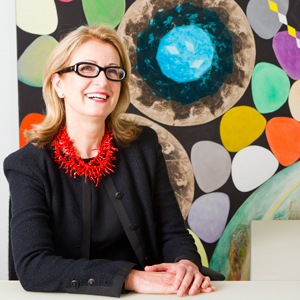Strategy
EXCLUSIVE INTERVIEW: BSI’s Heer Spells Out Growth Strategy For Hong Kong

BSI Asia wants to hire another 20 relationship managers in Hong Kong this year and has ambitions to grow Asian AuM to $20 billion in five years time.

Esther Heer
BSI Asia began with a bang. Hanspeter Brunner, formerly the chief executive of RBS Coutts, quit the UK bank in October 2009 to head up Switzerland’s Banca della Svizzera Italiana's Asia business out of Singapore. But weeks later he was reunited with over 100 of his former employees who quit RBS en masse for BSI, a startling move which underlined the bank's ambitions in the region.
Within just six months BSI had boosted its 30 staff in Singapore by around 200, the bulk of its 250-odd headcount today.
“At first, there weren’t enough desks for people,” recalls one former RBS employee who came over during the mass migration. “I had a chair, but instead of a desk I used the windowsill. The BSI office simply wasn’t prepared for all of these new employees who wanted to join. We only had half an office floor, compared to the three we occupy now.”
While large teams routinely jump between lenders in Asia, it was almost unheard of for a private bank to lose so many employees in one go. Integrating that number of individuals is challenging under any circumstances. But three years on and the business is moving from strength to strength.
In the bank’s most recent results, Dr Alfredo Gysi, CEO of BSI Bank, said that “the Asia business significantly contributed to the SFr2.9 billion net new money that BSI attracted in the first half of 2011,"
Among one of the later joiners from RBS was Esther Heer, now head of BSI Hong Kong and deputy CEO of BSI, which is owned by Italy’s Generali insurance group. With Hanspeter Brunner overseeing the Singapore office, Heer was charged with cultivating the lucrative North Asia business from its Hong Kong arm.
Heer’s vision
Heer built up the business in Hong Kong almost from scratch, into an 80-man outfit in just over two years. She is seeking another twenty for Hong Kong this year, mainly relationship managers. And although the Lugano-headquartered bank does not break out assets under management for its Asia division, Heer has ambitions to grow Asian AuM to around SFr18 billion ($20 billion) within the next five years – around a quarter of BSI Group’s current SFr72 billion.
“Already within the last two years we have grown assets under management by a factor of 30,” she tells me in her office on the twentieth floor of Hong Kong’s Exchange Square skyscraper. As at home discussing how to secure the best yield for private clients as she is debating the nuances of Verbier’s ski slopes or the Chinese contemporary art market, Heer’s holistic approach to her job is clearly paying off.
And since BSI was given a full banking licence from the Hong Kong Monetary Authority last December, her division has been gaining momentum.
She managed to secure the licence from the watchdog within only 11 months. “It came pretty quickly,” she said. “We focused very much on it, we had a whole team supporting this initiative. We had installed Avaloq, our private banking platform, last July, so we were all ready to go.”
This means it is now a fully-fledged private bank able to provide clients with a suite of banking and investment services. Although BSI has had a presence in Hong Kong since 1981, it was initially through a representative office and more recently through an investment advisory division, as BSI Investment Advisors (Hong Kong).
For BSI and its peers, Asia is being increasingly thrown into the spotlight as the shift of global power moves from West to East. With a population of 3.3 million millionaires – overtaking that in Europe, for the first time last year, according to Merrill Lynch and Capgemini, no wonder banks are growing their headcount to tap the region’s swelling pool of wealth.
And BSI is no exception. Since BSI received the license on 7 December it has added 5 relationship managers to its Hong Kong office.
The fully licensed-division in Hong Kong complements the Singapore headquarters, said Heer. “Hong Kong and Singapore are two very different markets. Our Hong Kong office usually focuses on North Asia including Hong Kong, Taiwan and China, whereas Singapore is more targeted at South Asia. This is good because the needs of the clients in these regions are very different in terms of their stage of wealth. For example, many Chinese are still investing into their businesses. Chinese are frequently very rich on their own stock but not very cash rich. They are happy to take on plenty of leverage too and comfortable to take risks, more so than in the established markets. So we see if we can help them to diversify,” she said.
Differentiating against the competition
How does BSI, a foreign bank with limited history in Asia, differentiate against competition who are larger, more far-reaching and have had a longer presence? "We give the client a holistic approach to wealth management and not just provide opportunistic wealth management. Certain players here are act more like glorified brokers than wealth managers, they are transaction-focussed," she adds.
The bank has also worked to get its IT systems and operations in place, something which Heer believes is a key differentiator in the overcrowded market. “The main focus within the first 12 months was to set up the back office platform which we have achieved very successfully,” she said.
Elsewhere Heer sees growth in loans and financing at the bank. Most of BSI Asia’s clients are entrepreneurs or professionals who are still looking to grow their wealth aggressively, and are using loans to grow their assets.
This trend is playing out elsewhere in Asia - a survey published earlier this week from Standard Chartered and Scorpio Partnership showed that 100 per cent of the 2,800 affluent individuals surveyed wanted to take out a loan of some form this year – but not to buy trophy assets. Asian affluent are increasingly using borrowed money to make money, as a form of wealth structuring.
In terms of attracting the best bankers, which in Asia are notoriously in short supply, headhunters say that BSI offers some of the best compensation in the market. "We do pay competitively," agrees Heer. "And we are in a lucky position to be able to give private bankers a position to help build something they have always wanted to work for."
A creative workplace
BSI is well-known for its extensive art collection and its office walls are hung with a smorgasbord of contemporary and classic masterpieces. Heer is knowledgeable about the art market, and she tells me that investment is not the end game. “Yes there is the investment story, but if you enjoy art why not buy a picture so you can look at it every day,” She says she is aware of an increasing move of Chinese wealthy to invest in art as a means of diversification and a wealth hedge – partly why Sotheby’s and Christie’s are posting such buoyant results for their Asian art categories.
“With all the wealth that has been created in recent years, and with these volatile stock markets, they look for an alternative investment, be it wine or art, instead of investing in art or wine funds,” she said.
Does BSI ever sell its art at opportune moments in the market? She looks horrified - “No! I tell clients they should only buy what they love. I love the art and that is what I would agree with,” she adds firmly.
